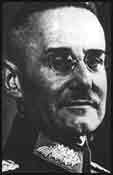

In July 1946, General Franz Halder testified before Commissioner Ian D. Halder used his influence to foster a false history of the German-Soviet war in which the German army fought a "noble war" and which denied its war crimes. He oversaw the writing of over 2,500 historical documents by over 700 former Nazi officers, whom he instructed to remove material detrimental to the image of the German armed forces. On 31 January 1945, Halder was officially dismissed from the army.Īfter the war, Halder served as a lead consultant for the US Army Historical Division. Halder was imprisoned at both the Flossenbürg and Dachau concentration camps. Although he was not involved in 20 July plot, intense interrogations of the conspirators revealed that Halder had been involved in earlier conspiracies against Hitler. On 23 July 1944, after the failed 20 July assassination attempt on Hitler's life by German Army officers, the Gestapo arrested Halder. His dismissal by Hitler is regarded as one of the symptoms of the decline and fall of German military might. He had his staff draft both the Commissar Order (issued on 6 June 1941) and the Barbarossa Decree (signed on ) that allowed German soldiers to execute Soviet citizens for any reason without fear of later prosecution, leading to numerous war crimes and atrocities during the campaign. Halder became instrumental in the radicalization of warfare on the Eastern Front. He directed the planning and implementation of Operation Barbarossa, the 1941 invasion of the Soviet Union. Generaloberst Franz Halder, was the Chief of the General Staff of the Supreme Command of the German Army (OKH), 14 August 1939 to 24 September 1942Īt the end of 1939, Halder oversaw the development of the invasion plans of France, the Low Countries, and the Balkans. World War II Franz Halder Chief of Staff German Diaries and Reports of Interrogations of Halderġ,592 pages of Halder dairies and reports on Halder and results of interrogation of Halder.


 0 kommentar(er)
0 kommentar(er)
